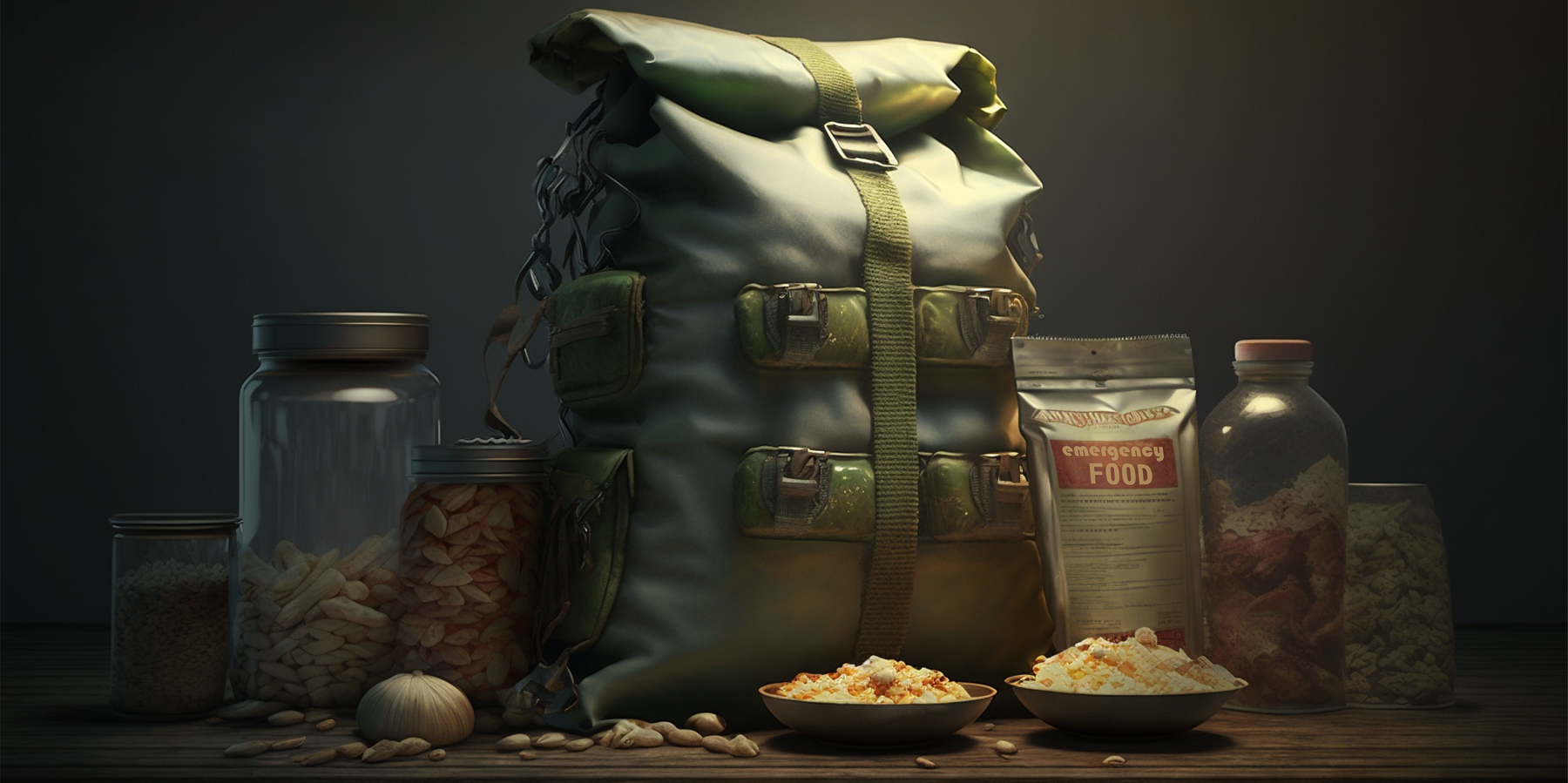
Emergency Food Supply for Multi-Day Power Outages: A Comprehensive Guide for UK Residents
Emergency Food Supply for Multi-Day Power Outages: A Comprehensive Guide for UK Residents
Power outages can strike at any time, and with an increasing demand for electricity and a more volatile climate, the UK has seen a rise in the frequency and duration of these events. A 2020 study by the Energy Networks Association revealed that power cuts affected 685,000 homes across the UK that year, with an average duration of 16 minutes. While most power outages are short-lived, it's crucial to be prepared for multi-day outages that can leave households without essential utilities. In this article, we'll provide you with a comprehensive guide to creating an emergency food supply that can last through extended power outages.
-
Assessing Your Needs
Before you start stocking up, consider the number of people and pets in your household, as well as any dietary restrictions or medical conditions. The UK government recommends keeping at least a three-day supply of non-perishable food and water for each person, but you may choose to extend this to a week or more, depending on your household size and storage space.
-
Choosing the Right Foods
When selecting foods for your emergency supply, focus on non-perishable items that require minimal preparation and have a long shelf life. Consider the following options:
-
Canned foods: Tinned fruits, vegetables, beans, and soups are excellent choices, providing essential nutrients and lasting up to five years. Additionally, canned fish and meat like tuna, chicken, and corned beef are good sources of protein. Be sure to have a manual can opener on hand.
-
Dry goods: Rice, pasta, and grains can be stored for long periods and are versatile staples. Dried fruits, nuts, and seeds are also valuable for their high energy content and portability.
-
Ready-to-eat meals: Freeze-dried meals, like those used by campers and the military, can be prepared with hot or cold water and have a shelf life of up to 25 years.
-
Snacks: High-energy, nutrient-dense snacks like cereal bars, crackers, and chocolate can help keep spirits high and provide a quick energy boost.
-
Storing Water
The UK government recommends storing at least two litres of water per person per day for drinking and an additional two litres for food preparation and hygiene. Store water in food-grade containers and replace it every six months to ensure freshness. If you run out of stored water, you can purify tap water by boiling it or using water purification tablets.
-
Food Safety During a Power Outage
When the power goes out, it's essential to keep food safe for as long as possible. Follow these tips:
-
Keep refrigerator and freezer doors closed to preserve cold air. A closed refrigerator can maintain a safe temperature for up to four hours, while a full freezer can stay cold for up to 48 hours.
-
Use coolers and ice packs to store perishable food if the power outage is expected to last more than four hours.
-
Discard any perishable food that has been at room temperature for more than two hours or has an unusual odour or texture.
-
Cooking Without Power
If you have access to an outdoor space, a portable gas stove or barbecue can be used for cooking. Otherwise, a camping stove or even a fondue set can provide indoor alternatives. Remember to follow safety guidelines and never use fuel-burning appliances indoors without proper ventilation.
-
Rotating Your Emergency Food Supply
To ensure your emergency food supply remains fresh and safe, regularly check expiration dates and consume items before they expire. Replace consumed items with fresh ones and rotate your stock to maintain a consistent supply.
-
Special Considerations for Infants, Elderly, and Pets
When creating your emergency food supply, don't forget the unique needs of infants, elderly family members, and pets:
-
Infants: Stock up on baby formula, baby food, and disposable nappies to ensure their wellbeing during a power outage.
-
Elderly: Be mindful of any dietary restrictions and medication requirements. Keep a supply of easy-to-chew and easy-to-digest foods, like canned fruit, applesauce, and instant porridge.
-
Pets: Ensure you have enough pet food and water to last through the power outage. You may also want to have a backup supply of any essential medications or supplements your pet may require.
-
Assembling an Emergency Kit
In addition to your emergency food supply, it's a good idea to assemble a comprehensive emergency kit. This kit should include:
- A battery-operated or hand-crank radio to receive news updates and instructions from authorities
- Torches with extra batteries
- A first-aid kit
- A multi-tool or Swiss Army knife
- Personal hygiene items like soap, hand sanitiser, and wet wipes
- A whistle to signal for help
- Blankets or sleeping bags for warmth
- Copies of important documents, like insurance policies and identification
- Cash, in case electronic payment systems are down
-
Staying Informed and Connected
During a power outage, it's essential to stay informed about the situation and maintain communication with family, friends, and emergency services. Keep a list of emergency phone numbers and invest in a solar or battery-powered charger for your mobile phone. You can also sign up for emergency alerts from your local council or utility provider to receive updates about power outages and restoration efforts.
Conclusion
By preparing an emergency food supply and being aware of food safety practices during a power outage, you can ensure that you and your loved ones remain nourished and safe. With a comprehensive emergency kit, the right food and water storage, and a plan for cooking without power, you'll be well-equipped to face multi-day power outages with confidence. Remember, the key to staying calm during a crisis is being prepared, so take the time now to create your emergency supply and plan for the unexpected.
Suggested Articles
Surviving Winter Storms: Tips for Staying Safe and Warm in the UK
Winter storms can bring extreme weather conditions to the UK, including heavy snowfall, freezing temperatures, and st...
The Best Food to Pack in a Bug-Out Bag
Introduction: Understanding the Importance of a Bug-Out Bag In an unpredictable world, being prepared for emergencies...
Preparing for the Worst: The Top Emergencies That Require a Food Supply
As the saying goes, hope for the best but prepare for the worst. In the UK, emergencies can come in many forms, from ...




